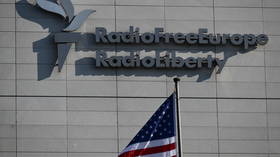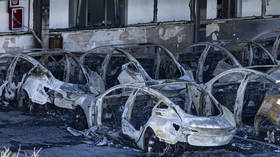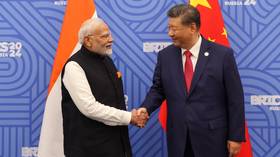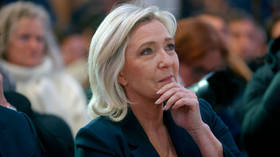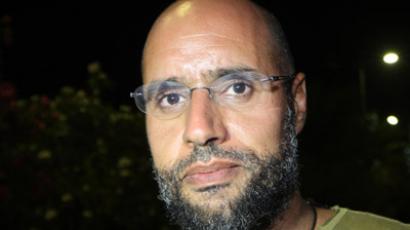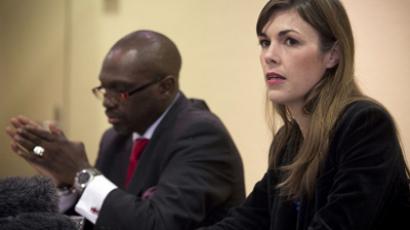Democratic Libya: ‘Weak state marred by chaotic infighting’
After a national election marred by violence and boycotts, vote counting is now underway in Libya. The election marks the beginning of a new, weak Libya, political analyst Richard Spencer told RT.
Official results for the historic parliamentary election are not expected to be released for about a week, but the country's liberal Islamic coalition has already claimed an overall lead, contradicting predictions that hardline Islamist parties would sweep the poll. "Early reports show that the coalition is leading the polls in the majority of constituencies," Faisal Krekshi, secretary general of the National Forces Alliance, told AFP on Sunday.The chief of the Libyan Election Commission said that 62 per cent of the country's eligible voters cast their ballots for the 200-seat parliament that is to elect a new prime minister.Many in Libya's east boycotted the election, protesting the allocation of seats in the new General National Conference, the interim parliament. But Libya is likely to be caught in a swamp of chaotic infighting regardless of the result, Richard Spencer, a founder and co-editor of the online magazine alternativeright.com, told RT.RT: When this revolution began, this election could only be dreamed of. Is this the beginning of a new Libya?Richard Spencer: Well, I’m afraid it is a beginning of a new Libya. And that is a Libya that is weak, that is marred by chaotic infighting, and sometimes with tribal loyalties expressing themselves in the democratic process. And it is a Libya that no longer has a strong man who in his own small way was actually willing to challenge the Washington consensus. So there is going to be a new Libya, it’s going to be a weak Libya. And that is what the United States wanted.It’s a kind of divide and rule strategy. You know, a decade ago we had Saddam Hussein as a strong secular national leader. He was taken out. The people who were actually empowered by that were Shiite religious leaders.We look at Libya, we were working with Islamist rebels to attack Gaddafi. So, the United States is kind of willing to work with these thugs so long as some basic terms are maintained. And that is, A, that the oil must flow. And B, that it must be denominated in dollars. And, I guess, C, that you don’t have anyone that is really going to challenge Washington.RT: Regardless of who wins, what next? Armed gangs, loyal to local warlords, continue to do as they please. What could this new government achieve that the NTC could not?RS: I think we are going to have a democracy much like we have a democracy in Iraq or in Afghanistan. There are going to be very ineffective leaders. There are a lot of things that we Westerners do not understand about these countries, that we try to reengineer. These tribal loyalties, religious divisions, etc. are going to affect the political process. And it is going to be an ineffective, powerless regime. But again, that seem to be the main point of the invasion. I don’t think that we should fool ourselves that Washington attacked Libya and installed the democracy in order to do the Libyan people and the world a favor. They wanted to weaken Libya and the wanted to take out a man who was challenging the Washington consensus.RT: Many of those who were against these elections are coming from the Eastern part of Libya. If they are supported and actually turn against a supposedly unified government, do you think that perhaps they could pursue independence?RS: There’s a possibility that we would have created a civil war by taking out a strongman. But again, I think a more likely scenario is that Libya is going to be caught in this swamp of chaotic infighting democracy, and it is just going to simply be a weak country where there is no really effective leadership. Maybe even a little bit like Lebanon, where you just have these ethnic religious disputes that are never resolved.



